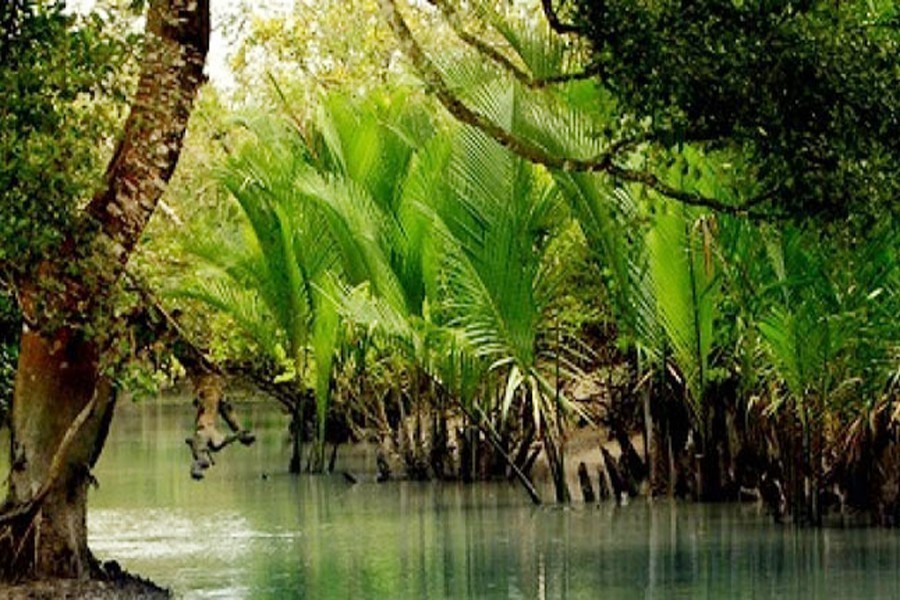
Published :
Updated :

The government has taken a plan to create mangrove forestry in 17,000 hectors of land during 2021-22 to 2023-24 fiscal aiming to protect and preserve forestry and wildlife, according to an official document.
Besides, an updated version of Climate Fiscal Framework will be published in line with Bangladesh Delta Plan 2100 and SDGs.
Addressing climate change towards maintaining a sustainable environment and optimum forest coverage is a priority for the government, reports UNB.
The Bangladesh Climate Fiscal Framework 2020 has been developed as an updated version of Climate Fiscal Framework 2014 by Finance Division with support from its Inclusive Budgeting and Financing for Climate Resilience (IBFCR) Project.
The project is financed by the Government of Bangladesh and the United Nations Development Programme (UNDP).
The Bangladesh Delta Plan (BDP) 2100 is a long-term, integrated, and holistic vision of water and land management throughout Bangladesh. It aims to support the country's long-term development in the face of the opportunities and risks that emerge from the interface between water, climate change, and human activity.
Bangladesh has made great strides in development under the Sixth Five Year Plan (FY2010-FY2015), and aspires to build on this momentum to reach upper middle-income country status and eliminate extreme poverty.
Bangladesh is also the sixth most vulnerable country in the world to natural hazards such as flooding and cyclones. The frequency and intensity of these natural hazards will increase with climate change.
In medium term, as per the document, initiatives will be taken to implement projects or programmes for adaptation to, and mitigation of, climate change, reduction of environment pollution, improvement of biodiversity and enhancement of mangrove forest in coastal areas.
Moreover, the target of distributing dividends among the beneficiaries involved in social forestry has been set Tk 930 million for the fiscal year of 2023-24.
The ministry of water resources is managing integrated water resources management and thus complying with its responsibility of ensuring sustainable water supply in the country.
The ministry has given highest importance to excavation and re-excavation of rivers and canals, constructing and maintenance of infrastructures and development of Haors and Baors.
As part of Bangladesh Delta Plan 2100, the official document stated, initiatives have been taken to reconstruct small rivers, canals and water bodies in 64 districts.
"Steps have already been taken to establish Climate Smart Integrated Coastal Resource Database (CSICRD)."
CSICRD includes raising the navigability of rivers by dredging to prevent river erosion. This will also ensure supply of water during the lean season.
The document said that with a view to ensure safe, sufficient and healthy animal protein for all in the country, the ministry of fisheries and livestock is working sincerely.
Implementation of various development projects or programmes in light with the target set by the 8th Five Year Plan and Vision 2041 is ongoing, which are aimed at meeting demand of protein and nutrition in the country.
This sector has been able to supply 65 gram fish per day per person against the demand for 60 gram fish per day per person, it added.
Moreover, the Marine Fisheries Act 2020 has been formulated to increase income, generate employment for the people and develop the blue economy through proper management, extraction, conservation and development of fishery resources in the marine waters of Bangladesh.
In the medium term, priority will be given to enhancing productivity and breed development of livestock, etc.


 For all latest news, follow The Financial Express Google News channel.
For all latest news, follow The Financial Express Google News channel.